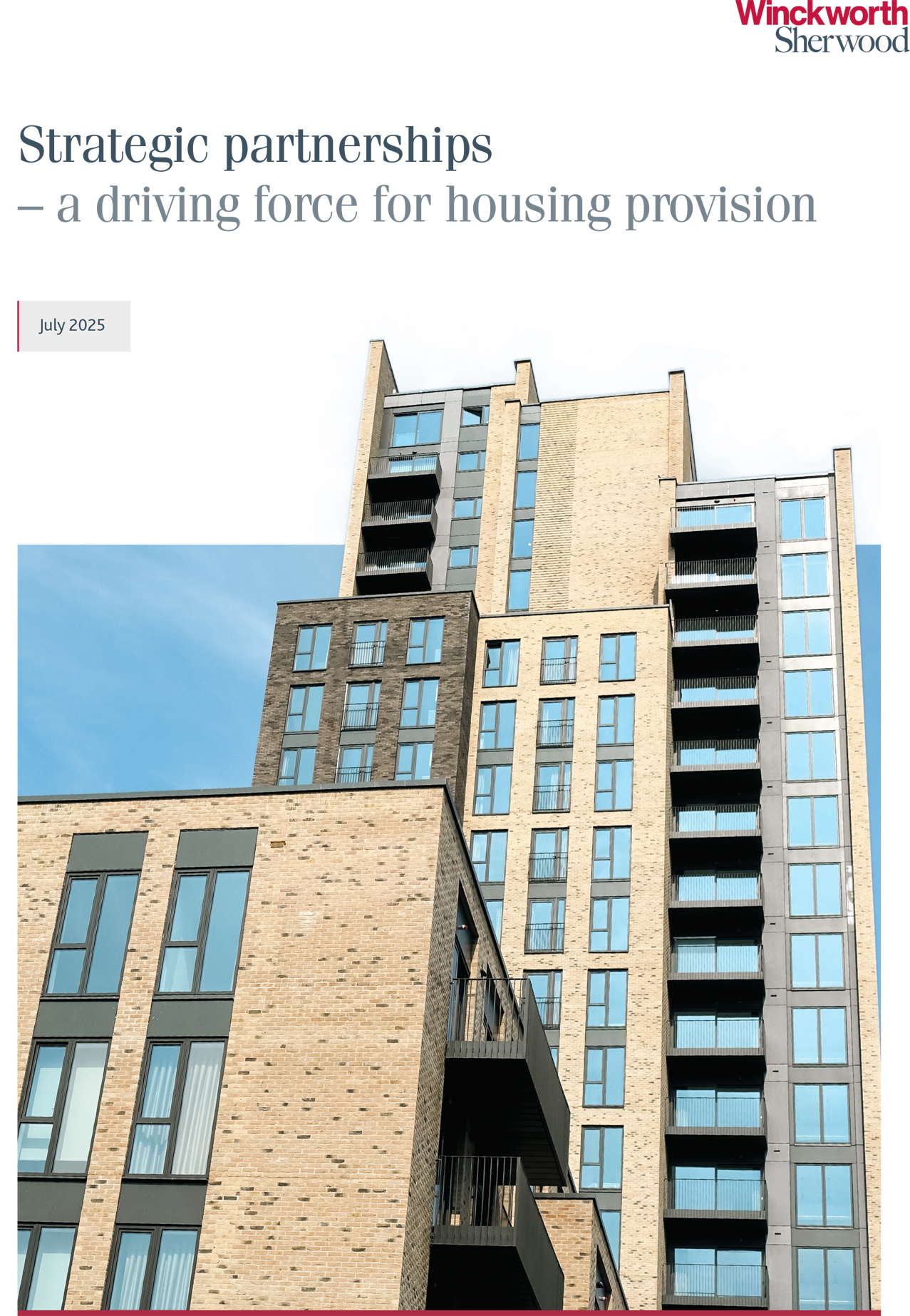
Strategic partnerships are increasingly fundamental in enabling residential developers to deliver new housing at scale, finds a major new study from law firm Winckworth Sherwood.
With residential developers continuing to face challenges with planning, building safety standards, funding and delivery of affordable homes, the law firm reports that 67% have already entered strategic partnerships, and 76% expect to enter further strategic partnerships within the next two years.
The report from Winckworth Sherwood, Strategic Partnerships – a driving force for housing provision, finds:
- 67% of residential developers in strategic partnerships say they have been successful. 29% said the results were mixed.
- 87% expect their competitors to enter strategic partnerships over the next two years.
- 54% enter strategic partnerships to share risk, 46% to access funding, 29% to access land and 22% to access expertise.
- 32% enter strategic partnerships with local authorities to secure their backing and support.
- 89% of residential developers expect to see an increase in institutional capital in the sector.
- 25% of private residential developers are considering investment in a for-profit registered social housing provider.
The study is based on in-depth interviews and a wider survey of developers, social housing providers, local authorities and funders.
Richard Tinham, Managing Partner at Winckworth Sherwood, said: “The Government has set ambitious targets for new housing delivery with a £39bn commitment on social and affordable housing over the next 10 years. But it is increasingly clear that public funding alone will not resolve many of the issues residential developers face.
“Our research highlights a clear evolution from opportunistic deals to more ambitious, long-term strategic partnerships—designed to unlock sites, secure funding, and drive sustained housing delivery at scale.”
Winckworth Sherwood’s Strategic Partnerships – a driving force for housing provision explores in detail the drivers behind strategic partnerships, the lessons strategic partners have learnt and how they are likely to evolve and develop.
It finds:
- Developers and housing associations favour larger sites that offer greater efficiencies and certainty.
- Strategic partnerships deliver greater community impact, particularly providing homes for at-risk individuals.
- Collaboration and partnership with the public sector accelerates project delivery.
- Values need to be closely aligned between strategic partners if they are to truly succeed.
- Strategic partnerships need to be structured with clear governance and flexibility.
- Private capital will increasingly shape future partnerships where there is a strong social and affordable housing element.
Richard Tinham said: “Our report shows that strategic partnerships have emerged as a vital mechanism for housing delivery, enabling organisations to build at scale. Not only do they share risk, unlock land, funding and expertise, they foster innovation, accelerate delivery and amplify community benefit.
“Importantly, strategic partnerships provide a robust framework for overcoming bureaucratic hurdles and regulatory obstacles, ensuring the successful delivery of large-scale residential development.”
You can download a copy of the rew report here.









